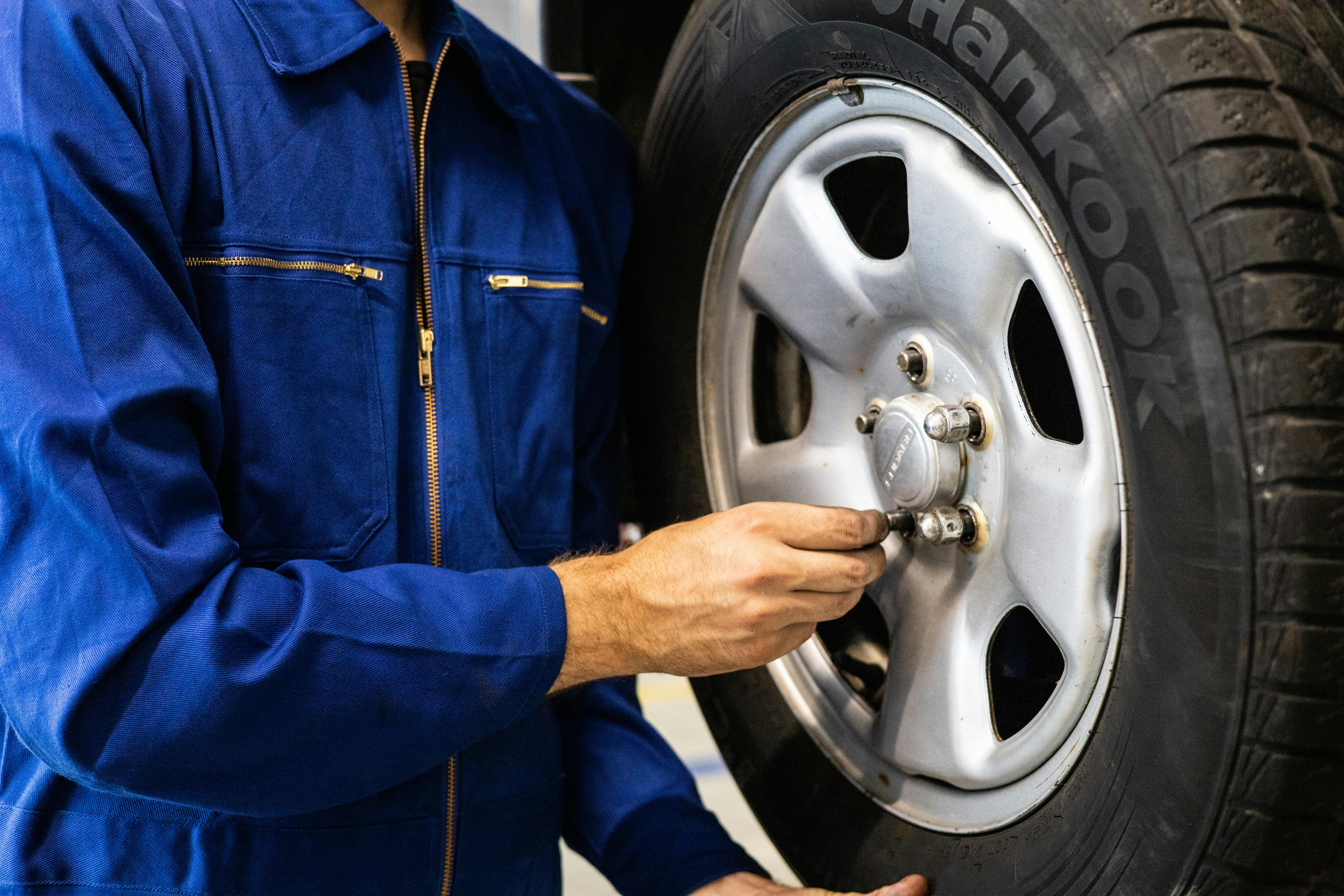
Are you tired of the annoying clicking noise coming from your Nissan Rogue when you turn? While the clicking noise can be a sign of something more serious, there are some steps you can take to reduce the risk of it occurring in the future.
In this blog post, we’ll provide some helpful tips for reducing the risk of clicking noise in your Nissan Rogue. From checking your tire pressure and wheel alignment to inspecting the suspension and brakes, we’ll provide the information you need to ensure a smoother and more enjoyable driving experience.
Contents
Symptoms of a Nissan Rogue with Clicking Noise When Turning
If you own a Nissan Rogue, you may have recently noticed a clicking noise when you turn the steering wheel. This issue is fairly common in the Nissan Rogue, and can be caused by a variety of underlying issues. If you’re experiencing this issue, it is important to diagnose and repair it as soon as possible.
The most common symptom of a Nissan Rogue with clicking noise when turning is a loud clicking sound coming from the steering wheel when making turns. This sound is usually accompanied by a feeling of resistance from the steering wheel as you turn it. It may also be accompanied by a grinding noise, or a feeling of looseness in the steering wheel when turning.
The most likely cause of a clicking noise when turning in a Nissan Rogue is a worn out tie rod end. The tie rod end is a component of the steering system which connects the steering rack to the steering wheel, and is responsible for transferring the force of the steering wheel to the wheels. Over time, the tie rod end can become worn out, causing it to make a clicking noise when the steering wheel is turned.
In addition to a worn out tie rod end, other possible causes of a clicking noise when turning in a Nissan Rogue include a worn out steering rack, loose steering wheel bearings, or a faulty power steering pump. It is important to diagnose and repair the underlying issue as soon as possible, as the clicking noise can become increasingly louder and cause further damage to the steering system.
If you are experiencing a clicking noise when turning in your Nissan Rogue, it is important to take your vehicle to a certified mechanic as soon as possible. They will be able to diagnose the underlying issue and repair it quickly and efficiently. Taking care of this issue now can save you from more expensive repairs down the line, and ensure your Nissan Rogue is running smoothly.

Potential Causes for Clicking Noise When Turning
One of the most common causes of a clicking noise when turning in a Nissan Rogue is a bad CV joint. The CV joint, or Constant Velocity joint, is located within the drive axle and helps transfer power from the transmission to the wheels. When it becomes worn or damaged, it can cause a clicking noise when turning.
Another potential cause of a clicking noise when turning in a Nissan Rogue is a faulty wheel bearing. The wheel bearing, located inside the wheel hub, is a circular bearing that helps the wheel to spin freely. If the bearing is worn or damaged, it can cause a clicking noise when turning.
A third potential cause of a clicking noise when turning in a Nissan Rogue is a worn or damaged u-joint. The U-joint, or universal joint, is located in the drive shaft and helps transfer power from the transmission to the wheels. When it becomes worn or damaged, it can cause a clicking noise when turning.
Finally, a clicking noise when turning in a Nissan Rogue could be caused by a worn or damaged steering rack. The steering rack is located within the steering column and helps the wheels turn in the desired direction. If it becomes worn or damaged, it can cause a clicking noise when turning.
Regardless of the potential cause of the clicking noise when turning in a Nissan Rogue, it is important to have it inspected by a qualified mechanic in order to determine the exact issue and have it resolved.
Troubleshooting Options to Fix Clicking Noise
If you own a Nissan Rogue and are noticing a clicking noise when turning, you may be wondering what the cause of the noise is and what you can do to fix it. There are a few possible troubleshooting options you can explore to get to the bottom of the clicking noise.
First, you should check your car’s wheel bearings. The wheel bearings are a vital component of your suspension system and help keep your wheels in place. If there is a problem with your wheel bearings, you may hear a clicking sound when you turn the wheel. You should inspect the wheel bearings for signs of wear and tear, and if necessary, have a professional replace them.
Next, you should inspect your tie rod ends. If the tie rod ends are loose or worn out, you may hear a clicking noise when you turn the wheel. You can inspect the tie rod ends yourself and if necessary, have a professional replace them.
Your car’s power steering system can also be a cause of the clicking noise. If the power steering system is malfunctioning, you may hear a clicking noise when you turn the wheel. You should inspect the power steering system for signs of wear and tear and if necessary, have a professional replace it.
Finally, you should check the suspension components of your car. If the suspension components are worn out or damaged, you may hear a clicking noise when you turn. You should inspect the suspension components for signs of wear and tear and if necessary, have a professional replace them.
By exploring these troubleshooting options, you can get to the bottom of the clicking noise in your Nissan Rogue. If you are unable to find the source of the noise yourself, it is best to consult a professional. They will be able to diagnose the problem and provide the necessary repairs to get your car running smoothly again.
Tips to Reduce Risk of Future Clicking Noise
When it comes to the Nissan Rogue, the clicking noise that is heard when turning can be quite annoying and may even be a sign of something more serious. Luckily, there are some steps that can be taken to reduce the risk of the clicking noise in the future.
First, it is important to make sure the tires have the correct pressure and that the wheel alignment is correct. This will help ensure the tires are not rubbing against any part of the vehicle, which can cause a clicking sound.
Second, it is important to check the suspension components, such as the struts, shocks, and control arms. If any of these components are worn out, they may be causing the clicking noise. It is important to have these components replaced if necessary to reduce the risk of the clicking noise in the future.
Third, it is also important to make sure the power steering system is in good condition. This includes checking the power steering fluid, as well as the power steering pump and hoses. If any of these components are worn out, it can cause a clicking noise.
Finally, it is important to have the brakes inspected regularly. If the brakes are worn out or not functioning properly, they can cause a clicking noise when turning. It is important to make sure the brakes are in good condition to reduce the risk of a clicking noise in the future.
By following these tips, you can reduce the risk of the clicking noise in the future and have a smoother and more enjoyable driving experience. If you are still experiencing the clicking noise after following these tips, it may be best to have a professional inspect the vehicle to determine the cause.
In Summary
If you own a Nissan Rogue and have been dealing with the annoying clicking noise when turning, there are a few steps you can take to reduce the risk of the noise in the future. Make sure your tires have the correct pressure and wheel alignment, check the suspension components such as struts, shocks, and control arms, and inspect your power steering system and brakes regularly.
These simple steps can help you enjoy a smoother and more enjoyable driving experience, and if the clicking noise persists after following these tips, it may be best to have a professional inspect the vehicle to determine the cause.
